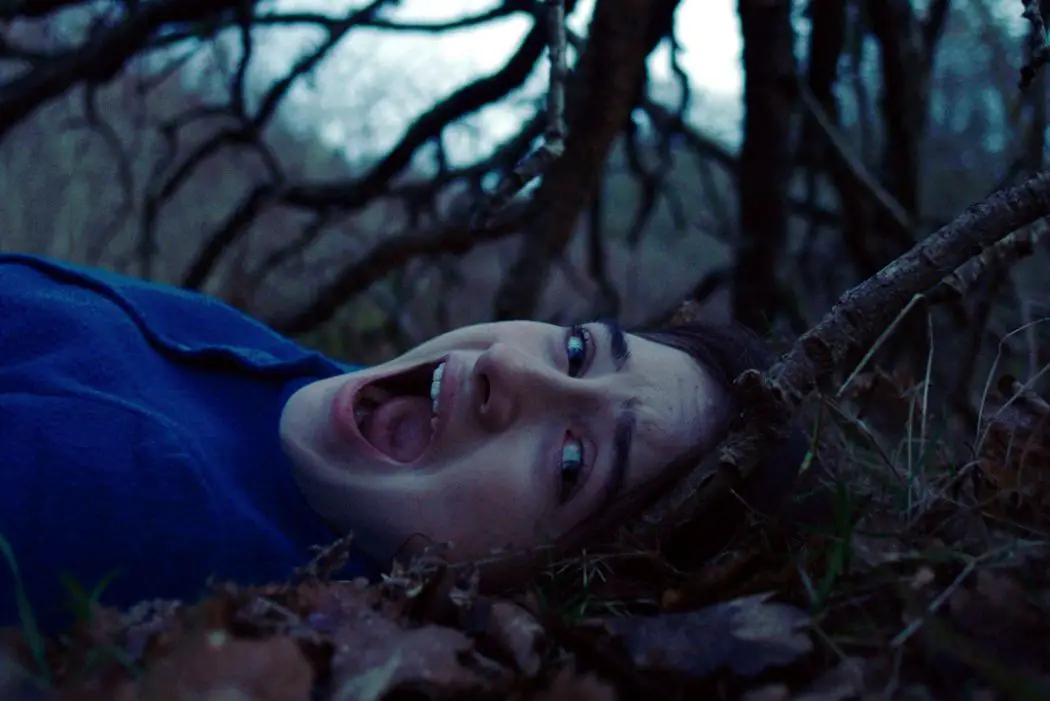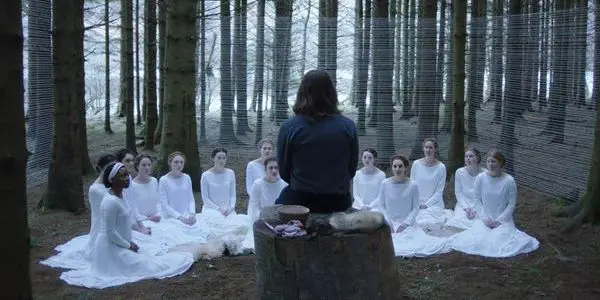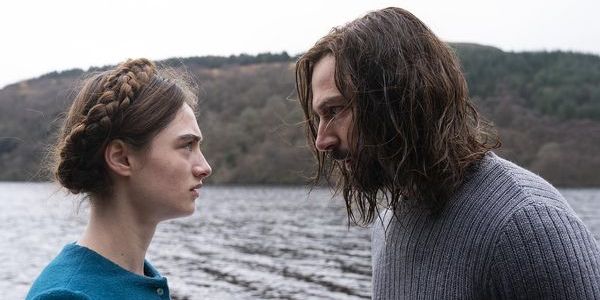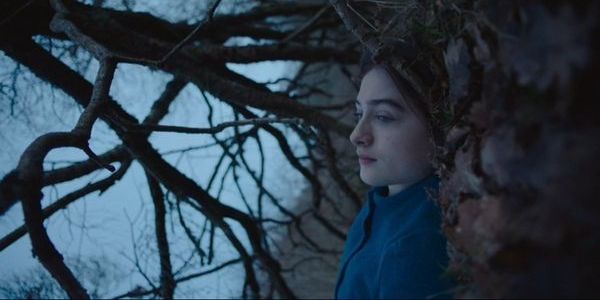THE OTHER LAMB: A Dark Feminist Fable That Strays Far From The Flock

Just a plain ol' country boy living in the big…
Cults have been under the cinematic spotlight for quite some time now, which is why it’s become increasingly fascinating to see how filmmakers choose to approach the subject without stumbling into derivative territory. While a majority of stories tend to fall into the realms of horror, it seems there’s been a limit to what can be explored beyond the annals of true crime or works of fiction vaguely inspired by them; unless of course they have offered deeper insights into the disturbing phenomenon.
The ones that seem to stand out the most are those that choose to unveil the damaging psychological effects that cults can have on those who get caught in their grasp. Perhaps the strongest example of this being Sean Durkin’s Martha Marcy May Marlene – which examined a woman struggling to adapt the real world after escaping the wrath of a toxic commune.
Malgorzata Szumowska’s The Other Lamb echoes a similar intensity to Durkin’s film, even though they are worlds apart in both form and content. It’s a common thing to see how the manipulative teachings of cult patriarchy can cause sceptical members to rebel, but very rarely do we get to witness the instinctive wonder of youth used as a weapon up against those kinds of forces, and here, the Polish filmmaker does just that, giving us a fresh perspective on the topic that proves to be just as challenging as it is wickedly absorbing.

A Wolf In Sheep’s Clothing
Believe it or not, this isn’t the first time actor Michiel Huisman has played a charming psychopath; the handsome star gave a chilling performance as the creepy dinner party host with a hidden agenda in Karen Kusama’s indie-hit, The Invitation, which demonstrated the man has a talent for using his on-screen charisma to manipulate those easily swooned. This time around, the maliciousness of his character is much less subtle but no less unsettling, as he poses as the Jesus-like leader to a small community of women in need of refuge and promise.
Set deep in the remote backwoods of Ireland, a symmetrical fortress of dagger-like pines form a sanctuary around the female cult run by their male leader, known as the Shepherd (Huisman). Adhering to traditionalist beliefs implemented to give them order and purpose, the women (or ‘The Flock’, as they’ve been named) are separated by the colour of their cloaks to rank their level of authority: the mothers in red and the daughters in green.
Living in the complete absence of transport, phones or even technology suggests that the conservative nature of their daily routines could be due to living in a time in history before those technical advances were accessible, but that concept of time is soon debunked when the modern law enforcement visit to the commune to interrogate an unspecified incident, suddenly confirming that the sheltered universe they call home is merely a way for their leader keep control over his flock.
While his authority is rarely questioned, as Selah (Raffey Cassidy) approaches the beginning of womanhood, she begins to experience lucid nightmares that urge her to question his wildly misogynistic teachings, simultaneously revealing a heightened sense of awareness that could shatter the group’s false sense of safety that’s been their only reality for so long.

Following her knockout performance in Brady Corbet’s 2018 pop-tragedy, Vox Lux, Cassidy returns as another victim of forced destiny who chooses to take control of the unusual circumstances that have befallen her. Yet, unlike in Corbet’s film, where a single traumatic event paved the path for her future, Szumowska uses the life-defining moment of a girl’s transition from adolescence into adulthood to catapult her protagonist into uncharted emotional and spiritual territory.
Immersing into the role with graceful composure, Cassidy’s natural wide-eyed innocence only reinforces the believability of a girl yet to be defined by her strange upbringing, and against Huisman’s domineering persona, there’s some devilish chemistry to be found amongst all the serenity encapsulating their cold corner of the world.
Sticks and Stones
As is the case with all great films, a majority of success relies not on what’s being told, but how a filmmaker decides to tell it. Szumowska has proven in the past that she’s more than capable of exploring risky areas to drive an intriguing narrative, but this might just be the first time that the words on the page seem to have less weight than the transfixing images that flood them as they are spoken.
The dialogue is sparse and esoteric, so in lesser hands, this is the kind of film that could have gained a ‘slow and pretentious folk horror’ reputation with all its formal rigour, yet it’s impossible to deny that the director has a solid grasp on her craft that’s only strengthened by the gorgeous technical aspects weaving it together.

If one thing could be said, Michal Englert’s cinematography is one of the standout features; the framing of exterior spaces shot through icy lenses and off-balance compositions creating a grim and coldly brooding playground for The Flock to exercise their disturbing dedication for an unpredictable future. Wide shots of dense grey skies and endless mountain ranges amplify feelings of isolation felt by the commune, but it’s the slow zooms and pulls on Selah’s face that capture the real sense of impending doom – as if the gaze of Englert’s camera is threatening to taint her purity.
The Age Of Innocence
As far as dark psychological dramas go, The Other Lamb works better at exploring its metaphors than it does as linear storytelling with a clear message at its core. Loose in momentum but razor-sharp in vision, Szumowska has an objective and uses some masterfully vexing imagery to eviscerate the inner workings of communal faith and generational discord, revealing a disturbing feminist fable for the ages whose blood simmers with oppressive rage.
It’s a genuine spellbinder that’s both beautiful and alarming, succeeding as a strong example of visually-dependant storytelling and a bewitching work of art that understands the collective power of femininity.
Have you seen The Other Lamb? If so, do you think it sets itself apart from other films in the cult-genre enough to be original? Leave your thoughts in the comments section below.
The Other Lamb is available on Amazon, iTunes, Vudu and the Microsoft Store.
Does content like this matter to you?
Become a Member and support film journalism. Unlock access to all of Film Inquiry`s great articles. Join a community of like-minded readers who are passionate about cinema - get access to our private members Network, give back to independent filmmakers, and more.
Just a plain ol' country boy living in the big city with even bigger dreams. Film obsessed and 100% dedicated to surrounding myself with all forms of art 24/7. I love to write as a creative outlet, and share my thoughts and ideas about the world of cinema with likeminded individuals.













